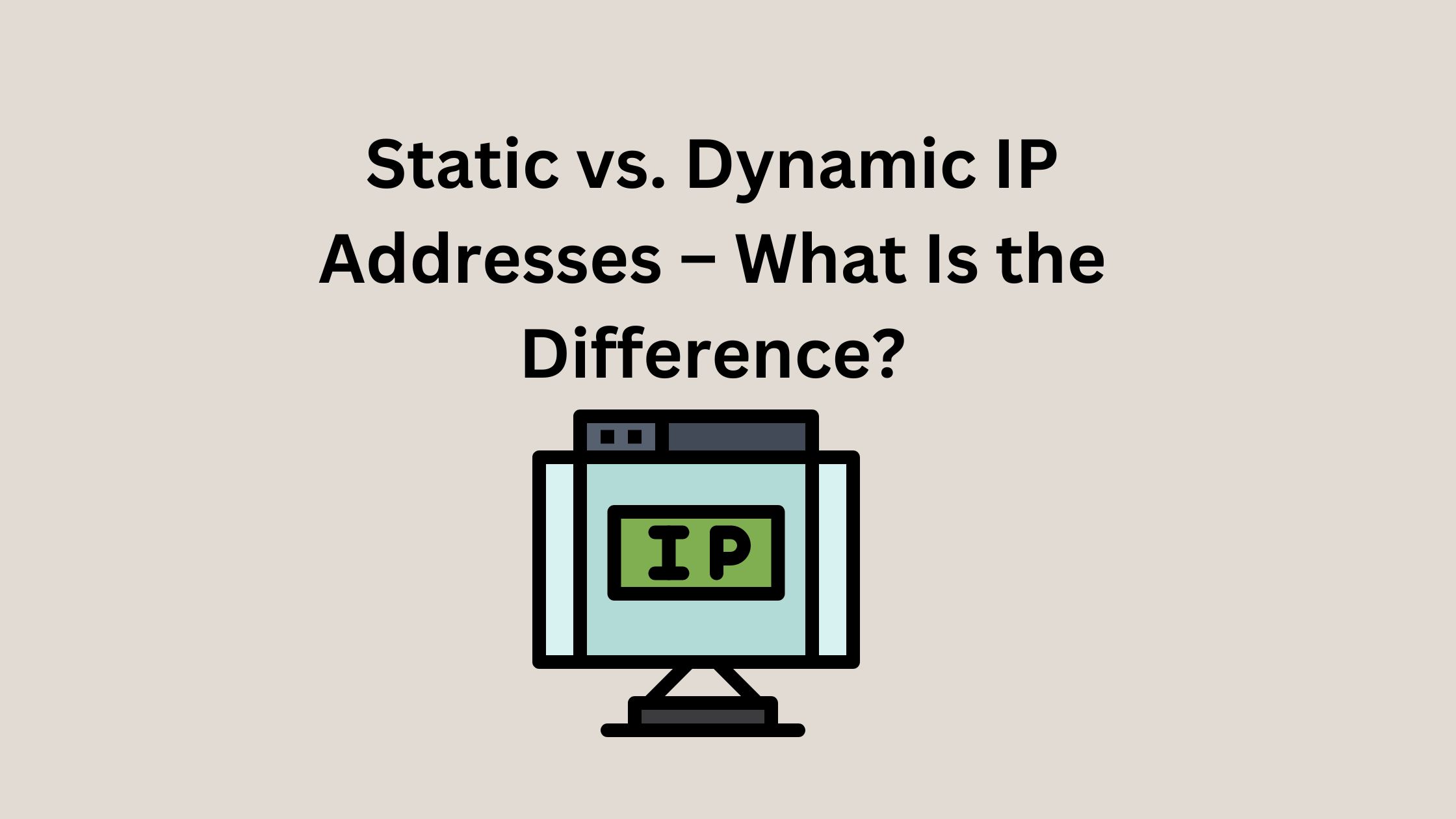Static vs. Dynamic IP Addresses: Navigating the Digital Landscape
In the vast and ever-evolving digital world, every connected device needs a unique identifier to communicate and navigate the internet. This identifier, known as an IP address, acts as your virtual passport, allowing you to access websites, send emails, and participate in online activities. However, not all IP addresses are created equal.
There are two main types: static and dynamic. While both serve the same core purpose, they differ in their allocation and characteristics.
Static IP Address:
A static IP address, as the name suggests, is a permanent address assigned to a specific device. Once assigned, it remains unchanged unless manually altered. Imagine it like a fixed address for your home, allowing mail and deliveries to reach you consistently.
Also Read: What is IP Address?

Benefits of Static IP Addresses:
- Remote access: Static IPs facilitate consistent and reliable remote access to devices, making them ideal for servers, security cameras, and other critical devices.
- Gaming and online hosting: Static IPs are preferred for online gaming and hosting servers, ensuring seamless connectivity and performance.
- Port forwarding: Static IPs enable efficient port forwarding, allowing specific applications and services to be accessed remotely.
- Improved security: Static IPs can enhance network security by simplifying access control and intrusion detection mechanisms.
Drawbacks of Static IP Addresses:
- Limited availability: Static IPs are a finite resource, and their availability may vary depending on your internet service provider (ISP).
- Costly: In some cases, ISPs may charge additional fees for assigning and managing static IP addresses.
- Security concerns: Static IPs can be targeted by hackers, as they remain constant and easier to identify.
Dynamic IP Address:
Unlike static IPs, dynamic IP addresses are temporary and assigned automatically by your ISP each time you connect to the internet. Imagine it like a temporary apartment number assigned during a short stay, changing with each visit.
Benefits of Dynamic IP Addresses:
- Cost-effective: Dynamic IPs are generally included in standard internet service plans, making them more affordable than static IPs.
- Wider availability: Dynamic IPs are readily available due to their temporary nature, ensuring consistent internet access for a large number of users.
- Enhanced privacy: Dynamic IPs offer improved privacy, as their temporary nature makes it difficult for trackers to monitor online activity.
- Reduced security risks: The changing nature of dynamic IPs makes it harder for hackers to target specific devices.
Drawbacks of Dynamic IP Addresses:
- Connection instability: Dynamic IPs may lead to inconsistent connections and service disruptions as the address changes.
- Port forwarding challenges: Forwarding specific ports can be difficult with dynamic IPs, impacting applications and services reliant on remote access.
- Troubleshooting difficulties: Identifying and resolving network issues may be more complex due to the changing IP address.
Static vs. Dynamic IP Address: A Comparison
| Feature | Static IP Address | Dynamic IP Address |
| Nature | Permanent and unchanging | Temporary and changes with each connection |
| Availability | Limited and may require additional configuration | Widely available and included in standard internet plans |
| Cost | May incur additional fees from ISPs | No additional costs |
| Remote access | Facilitates seamless remote access | Can lead to connection instability for remote access |
| Gaming and online hosting | Preferred for optimal performance | May experience lag or interruptions |
| Port forwarding | Easy and efficient | Can be complex and require additional configuration |
| Security | Easier to implement security measures | Offers enhanced privacy due to changing nature |
| Troubleshooting | Identifying issues may be easier due to consistent address | Troubleshooting can be challenging due to changing address |
Also Read: Understanding IP Address Format and Function
Choosing the Right IP Address:
The choice between a static and dynamic IP address depends on your specific needs and requirements. Here are some factors to consider:
- Remote access needs: If you require consistent remote access to your device, a static IP is a better option.
- Gaming and online hosting: For uninterrupted gaming and hosting experiences, a static IP is recommended for optimal performance.
- Security concerns: If security is a major concern, a dynamic IP can offer enhanced privacy by making your device less identifiable.
- Budget: Consider the cost associated with static IP addresses, which may be a factor for personal use.
Understanding the Implications:
Understanding the differences between static and dynamic IP addresses empowers you to make informed decisions about your internet usage. Whether you require a reliable and permanent address for critical devices or prefer the cost-effectiveness and anonymity of dynamic IPs, knowing your options allows you to navigate the digital landscape with confidence and clarity.

2 thoughts on “Static vs. Dynamic IP Addresses – What Is the Difference?”